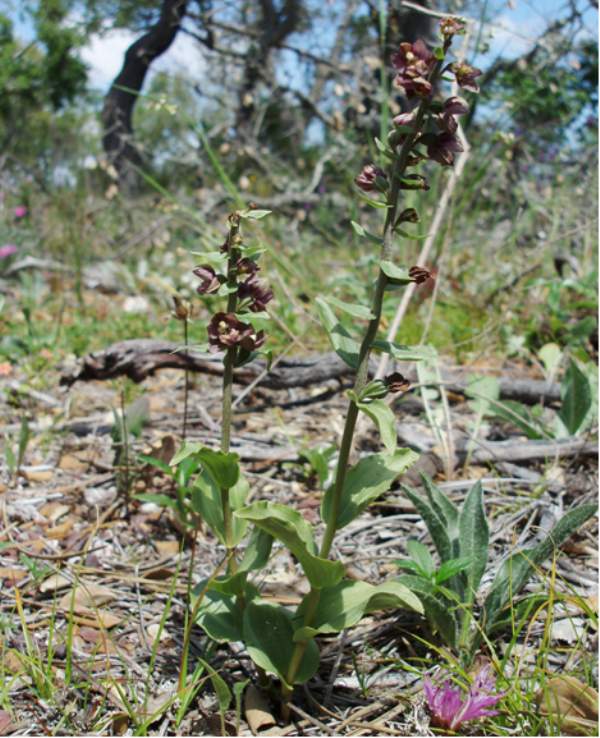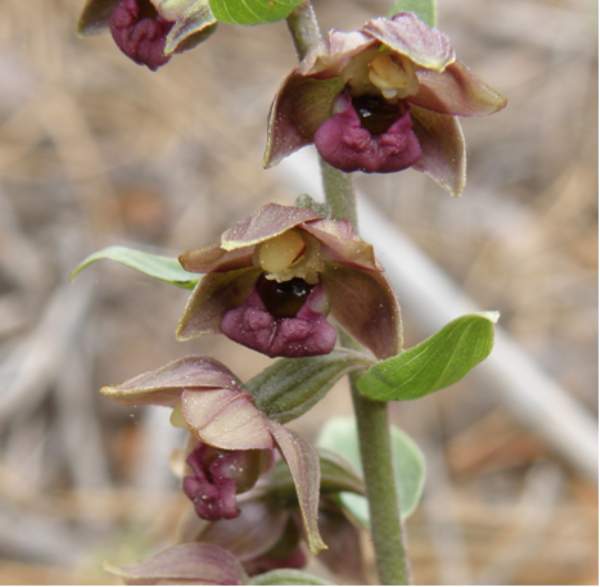Epipactis Tremolsii
Phylum: Magnoliophyta - Class: Liliopsida - Order: Orchidales - Family: Orchidaceae

The distribution of this orchid is confined to the western Mediterranean region where it grows in open mixed woodlands.
Description
Epipactis tremolsii is a robust looking plant with downy stems which grow to around 60cm in height. The oval and quite broad lower leaves have wavy margins which are mainly green but sometimes flushed red. They form closely overlapping clusters at the base of the stem. The upper leaves are much narrower and pointed and occur throughout the extended flower spike which covers most of the stem. The flowers only open partially and the petals and sepals remain incurved. They are often quite dark red with a glossy brown-to-crimson hypochile in the centre of the lip. The epichile (base of the flower lip) is heart-shaped with pronounced wrinkled bosses.
Distribution
Scattered throughout the Algarve region of Portugal this orchid becomes less frequent further north although colonies are recorded from parts of Spain and in southern France.
Habitat
We have found Epipactis tremolsii in woodlands in the mountains of the Algarve region of Portugal, particularly around the town of Monchique.

Flowering times
This orchid flowers from the beginning of April to the end of May.
The specimens shown above were photographed in the mountains near Monchique in the Algarve region of Portugal in early May.
Etymology
The genus name Epipactis is an ancient Greek name of a plant said to be capable of curdling milk (perhaps a Hellebore). The type species of this genus is Epipactis helleborine, the species name of which means 'like a hellebore' - a reference to a physical resemblance in this instance. The specific epithet tremolsii honours the Catalonian botanist Federico Tremols y Borrell (1831 - 1900).
Reference sources
The Plant List
Sue Parker (2023) Wild Orchids of the Algarve - where, when and how to find them; First Nature e-book (Amazon Kindle format)
Sue Parker (2014) Wild Orchids of the Algarve; First Nature
Pierre Delforge (2005) Orchids of Europe, North Africa and the Middle East; A&C Black
Please Help Us: If you have found this information interesting and useful, please consider helping to keep First Nature online by making a small donation towards the web hosting and internet costs.
Any donations over and above the essential running costs will help support the conservation work of Plantlife, the Rivers Trust and charitable botanic gardens - as do author royalties and publisher proceeds from books by Pat and Sue.


